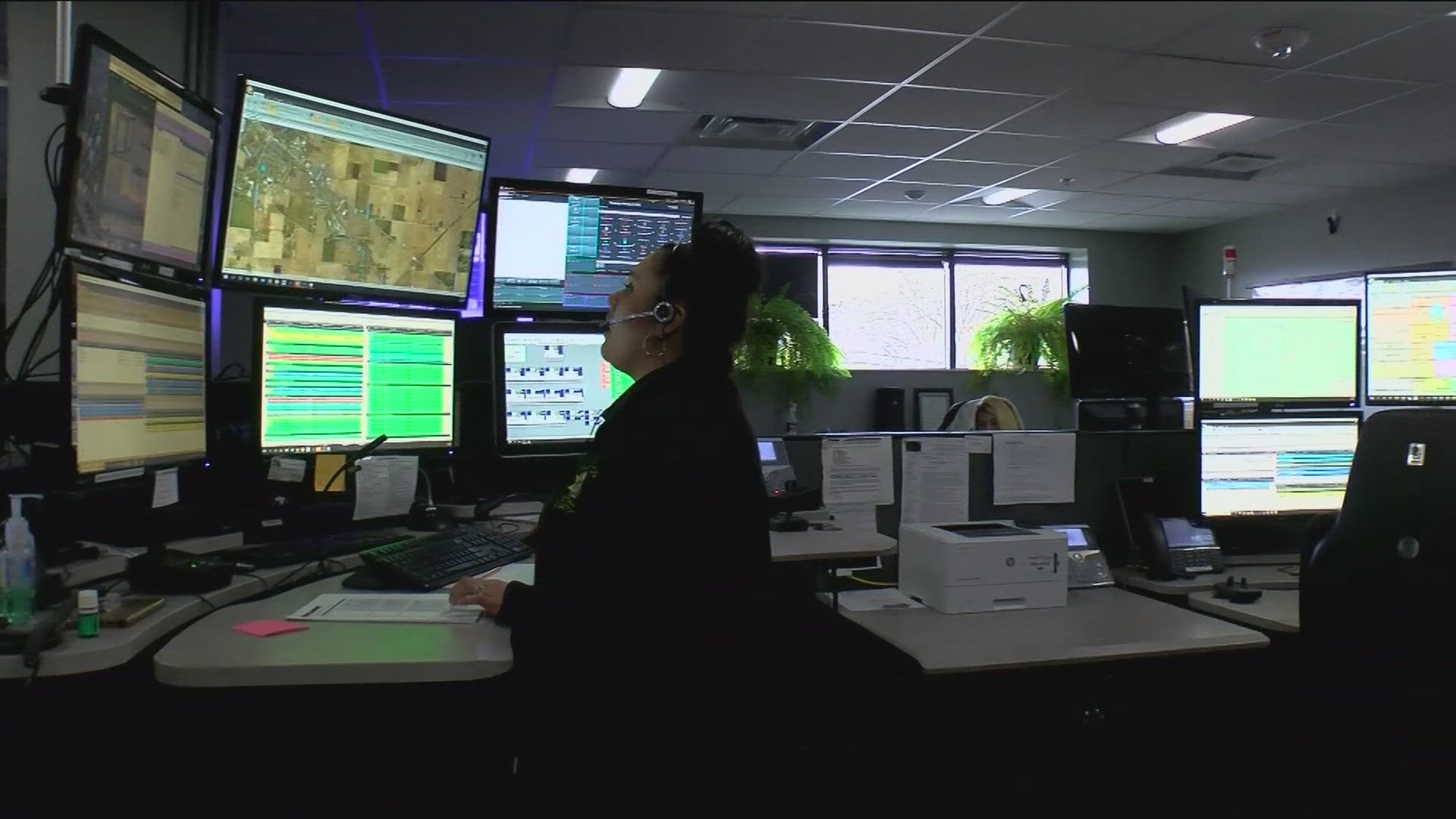TOLEDO, Ohio — According to the Ohio State Highway Patrol, since the start of 2024, local dispatch locations have received close to 700 calls requiring translation assistance.
As the calls continue to rise in number, the Lucas County 911 Regional Council of Governments and OSHP have adopted different means to help connect callers and call-takers while overcoming language barriers.
"Our dispatchers, as well as our troopers on the roadway, have access to Language Line which is in case somebody calls for help or we come across someone who doesn't speak English, we can close that barrier between the two of us and communicate," Sgt. Ryan Purpura with OSHP said.
Purpura said OSHP has utilized Language Line for years.
"This has been in use since 2005. This year already we've had nearly 700 calls on that line where either troopers on the roadside have used it or our dispatchers," Purpura said.
As the caller calls in, if needing translation assistance, the call taker can add a translator through an external line.
From there, the translator will work with both the caller and call taker to communicate their needs.
"Someone will come on the phone and will identify the language that we need assistance with, and then basically they are the in-between, the go-between, for speaking whatever it is and translating to the trooper or our dispatcher," Purpura said.
Similarly, the Lucas County 911 Regional Council of Governments uses Propio which is also a cellular language translation program.
"The vendor will help us identify that language and they'll translate for both the caller and for us so the call taker is getting the right information and we can get crews out under the circumstances," Brian Twining, the Lucas County 911 Regional Council of Governments deputy director of operations said.
Twining said ideally, the dispatch departments would be able to hire bilingual dispatchers or call takers.
However, he said realistically, it's not possible.
"Well, certainly bilingual call takers would be great but we can't cover every language out there, nor can we cover every shift 24 hours of the day," Twining said. "The languages range from Spanish, which was the number one call, to Haitian Creole, Russian, Mandarin and Portuguese, so it can be a variety of different languages and that's why it would be almost virtually impossible to hire enough people to cover every language that comes through."
Twining said in the last year, the Toledo area has received calls from over 12 different languages.
If anything, having the programs benefits the callers more, Twining said.
"Well for one, it gives the caller a voice. They know that they can be heard and they can get the information to us. For the call taker, it allows them to actually know what's going on, prioritize the call and get them set up for either police, fire, or EMS dispatch," Twining said. "We have a diverse community and we represent everybody and we respond to everybody in situations where they need us. So it's important for us to be able to do that for the community."
Sgt. Purpura and Twining said due to the program's effectiveness and their continued success without delay, they do not plan to defer from the current programs and plan to continue using them in the future.

